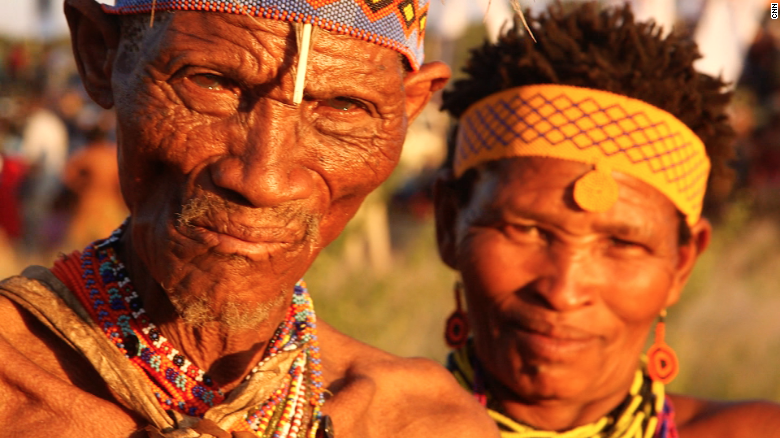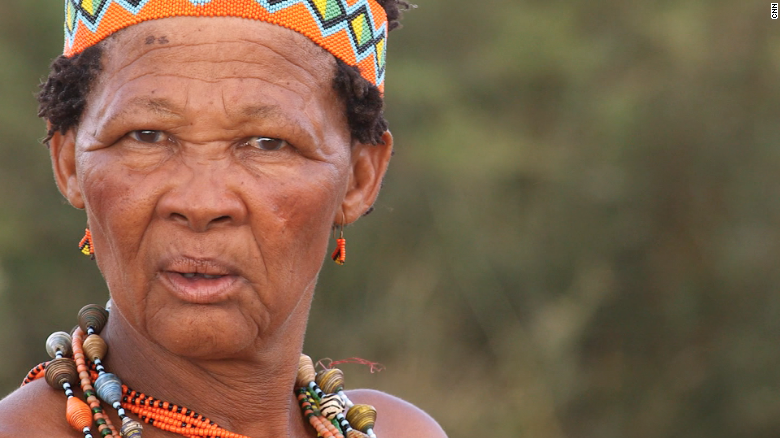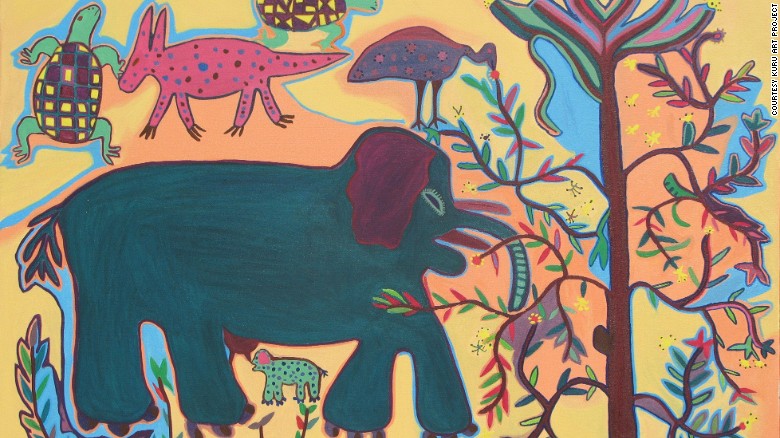Caught between modernity and 20,000 years as hunter-gatherers, the San people sit at a crossroads.
An indigenous people in Southern Africa, they are our oldest human ancestors, DNA testing proving the San are direct descendants of the first Homo sapiens. But today their culture, traditions and heritage are at risk of being lost forever.
The San live across South Africa, Botswana, Angola and Namibia. In Botswana they're known as the Basarwa, where they live a largely nomadic lifestyle that has remained undisturbed for millennia.

"Culture is something that can die and we should understand that culture is dynamic," says Bihela Sekere, part of the indigenous population who previously worked at the Botswana High Commission in London.
Sekere grew up in the Central Kalahari Game Reserve, the second largest of its kind in the world, hunting as his father had done before him. But in 1997 the government began removing the Basarwa from the reserve, ostensibly to protect the area and integrate the community into mainstream society.

Now based in a resettlement village, passing on age-old traditions has become harder and harder for the Basarwa.
"Some of the kids, Basarwa kids, are taken to schools (and) they can lose their culture because they are taught other ways of living," explains Sekere. "To start with the language -- if they are taught Setswana and English, it means the language will suffer."
Sekere also cites the famous trance dance, a stalwart of Basarwa culture, as something that could one day suffer at the hands of modern music, played on radios and mobile phones by youths.

Hope is not lost, however, while there are those willing to preserve indigenous culture. Local man Xontae guides the curious around some of his people's greatest heritage sites, including the Tsodilo Hills, where 4,500 rock paintings dating back to the Stone Age can be explored. Meanwhile the Kuru Art Project seeks to revive art making among the Basarwa once more.
British-Caribbean artist Ann Gollifer, who is part of the initiative, says that the work the Basarwa create mainly depicts a hunter-gatherer lifestyle of yesteryear. Using modern mediums to paint ancient traditions, these artworks have sold all over the world.
It's proof that culture is dynamic, malleable and susceptible to change -- for better or for worse. But with will and determination, the likes of Sekere believes the Basarwa have what it takes.
"Culture on its own, it is what makes you who you are... It's upon us, the youth, to learn from these old people to promote our culture and to preserve it while they are still alive."
Latest Stories
-
Import substitution strategies in the 24-Hour Economy: A catalyst for Ghana’s practical economic growth
54 seconds -
Chamber of Aquaculture urges President Mahama to nominate a Minister with agribusiness expertise
12 minutes -
Energy Minister-designate sets 6-months for ECG private sector involvement framework
14 minutes -
Mahama should scrap deputy ministerial position for tourism
18 minutes -
Global economy remains resilient, to grow by 3.2% in 2025 – OECD
35 minutes -
I’ll focus on the development of the real sector – Dr Ato Forson
38 minutes -
Energy sector debt has ballooned to $3bn – John Jinapor
40 minutes -
Businesses to see tax reliefs as Ato Forson promises VAT reforms
42 minutes -
PUWU reaffirms opposition to ECG privatisation
47 minutes -
Bond market: Secondary trade activity falls to GH¢403m
52 minutes -
NHIA commends Mahama for promising to uncap NHIS levy
1 hour -
TECNO named among 2024-2025 Top 10 Smartphone Brands, wins Dual Product Innovation Awards at CES 2025
1 hour -
Star Assurance kick-starts 40th anniversary with ’40 Reasons to Smile’ launch
1 hour -
Private sector participation crucial in power distribution – Jinapor
1 hour -
Disclaimer: Gwira Traditional Council rejects purported coronation of new Paramount Chief
1 hour

